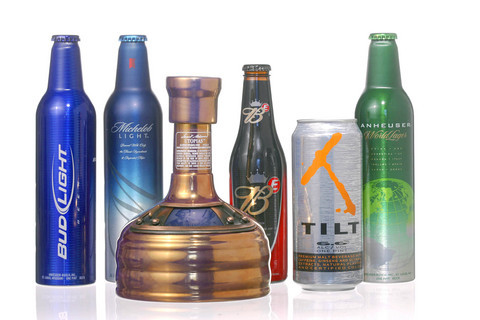Just in case there were any doubts, new research has concluded that the best way to beat a hangover -- at Christmas time or any other time -- is to steer clear of alcohol in the first place.
In a timely paper in the British Medical Journal, published Friday, three specialists in complementary medicine found "no compelling evidence" that conventional or alternative treatments can stave off the dreaded morning-after.
"Until the pathology of alcohol hangover is understood in more detail," wrote Max Pittler, Joris Verster and Edzard Ernst, "an effective intervention is likely to remain elusive."

PHOTO: NY TIMES NEWS SERVICE
"The most effective way to avoid the symptoms of alcohol-induced hangover is thus to practise abstinence or moderation."
Hangovers can be a real headache, and not just for revellers who have had a few too many.
In Britain, where binge drinking -- deliberately going out on the town to get smashed -- is an issue, excess drinking is blamed for about US$3.5 billion in lost wages each year.
Scanning the Internet, the researchers found no fewer than 38 "hangover cures," from aspirin to water by way of bananas, cabbage, coffee, fresh air, pizza, milk shakes and Vegemite on toast -- not to mention another stiff drink.
The researchers -- whose findings were based on an exhaustive trawl through published literature on hangovers -- did find signs that dietary supplements such as borago officinalis, or borage, can lead to a "significant reduction of hangover" and its symptoms of headache, laziness and tiredness.
But given the small number of people who took part in tests, and the absence of "unvalidated symptom scores," the results could not be seen as conclusive without further independent study.
What was clear was that, for the little that is known about hangovers, there are a lot of supposed remedies out there.
"The paucity of randomized controlled trials is in stark contrast to the plethora of `hangover cures' marketed on the Internet," the researchers said. "This confirms the unreliability of the Internet in health care matters."
Pittler and Ernst study complementary medicine at the universities of Exeter and Plymouth, in the southwest and south of England, while Verster is at the University of Utrecht in the Netherlands.

April 28 to May 4 During the Japanese colonial era, a city’s “first” high school typically served Japanese students, while Taiwanese attended the “second” high school. Only in Taichung was this reversed. That’s because when Taichung First High School opened its doors on May 1, 1915 to serve Taiwanese students who were previously barred from secondary education, it was the only high school in town. Former principal Hideo Azukisawa threatened to quit when the government in 1922 attempted to transfer the “first” designation to a new local high school for Japanese students, leading to this unusual situation. Prior to the Taichung First

Chinese Nationalist Party (KMT) Chairman Eric Chu (朱立倫) hatched a bold plan to charge forward and seize the initiative when he held a protest in front of the Taipei City Prosecutors’ Office. Though risky, because illegal, its success would help tackle at least six problems facing both himself and the KMT. What he did not see coming was Taipei Mayor Chiang Wan-an (將萬安) tripping him up out of the gate. In spite of Chu being the most consequential and successful KMT chairman since the early 2010s — arguably saving the party from financial ruin and restoring its electoral viability —

The Ministry of Education last month proposed a nationwide ban on mobile devices in schools, aiming to curb concerns over student phone addiction. Under the revised regulation, which will take effect in August, teachers and schools will be required to collect mobile devices — including phones, laptops and wearables devices — for safekeeping during school hours, unless they are being used for educational purposes. For Chang Fong-ching (張鳳琴), the ban will have a positive impact. “It’s a good move,” says the professor in the department of

Article 2 of the Additional Articles of the Constitution of the Republic of China (中華民國憲法增修條文) stipulates that upon a vote of no confidence in the premier, the president can dissolve the legislature within 10 days. If the legislature is dissolved, a new legislative election must be held within 60 days, and the legislators’ terms will then be reckoned from that election. Two weeks ago Taipei Mayor Chiang Wan-an (蔣萬安) of the Chinese Nationalist Party (KMT) proposed that the legislature hold a vote of no confidence in the premier and dare the president to dissolve the legislature. The legislature is currently controlled